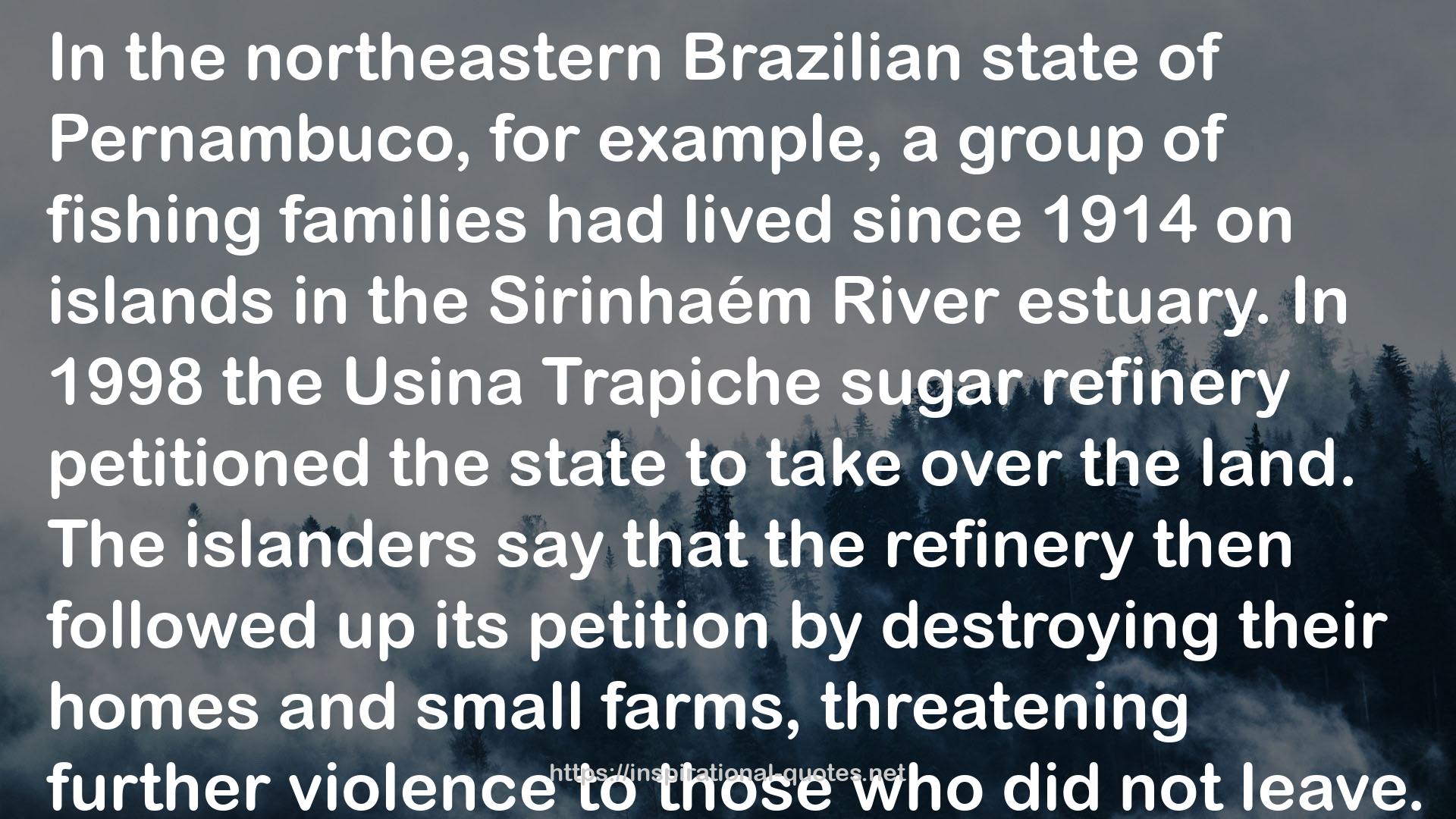" In the northeastern Brazilian state of Pernambuco, for example, a group of fishing families had lived since 1914 on islands in the Sirinhaém River estuary. In 1998 the Usina Trapiche sugar refinery petitioned the state to take over the land. The islanders say that the refinery then followed up its petition by destroying their homes and small farms, threatening further violence to those who did not leave. When the fishing families rebuilt their homes, they were burned down. Coca-Cola and PepsiCo use Usina Trapiche sugar in their products, but until Oxfam’s campaign they denied responsibility for the conduct of their suppliers. Oxfam asked all of the Big 10 food brands to show ethical leadership by requiring that their suppliers obtain the free, prior, and informed consent of indigenous and local communities before acquiring land. Nestlé was the first to support this principle fully. Then Coca-Cola declared a policy of zero tolerance for landgrabbing by its suppliers and bottlers and committed to disclosing its suppliers of sugar cane, soy, and palm oil, to conducting social, environmental, and human rights assessments, and to engaging with Usina Trapiche regarding the conflict with the people of the Sirinhaém River estuary. In 2014 PepsiCo also accepted the principle of responsibility for its suppliers. Associated British Foods, the largest sugar producer in Africa and another Big 10 food corporation, is now also committed to the same principle.12 The gains from these policy commitments are more difficult to quantify than in the example of Ghana’s oil revenues, but in the long run they too may be very substantial. "
― Peter Singer , The Most Good You Can Do: How Effective Altruism Is Changing Ideas About Living Ethically
